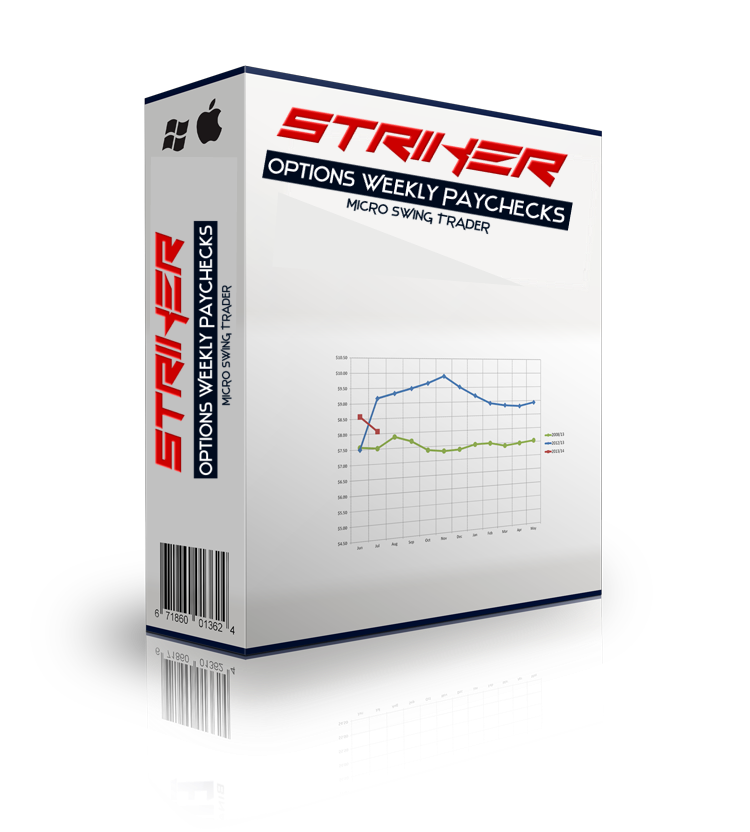Weekly Trading Income – Why Not Actually Go For It and Make It Happen?
Weekly Trading Income – Whether its A Weekly Paycheck Every Single Week or An Average Weekly Paycheck Over the Different Weekly Market Moves – We Can Help You Get That Done…
Hey there, savvy investor! Are you tired of waiting months or even years to see returns on your investments? Well, buckle up, because we’re about to dive into the exciting world of weekly trading income. Whether you’re a market newbie or a seasoned pro looking to spice up your portfolio, this guide has got you covered. So, grab your favorite drink, get comfy, and let’s explore how you can potentially start padding your wallet every single week!
Understanding Weekly Trading Income
Before we jump into the nitty-gritty, let’s make sure we’re all on the same page about what weekly trading income actually is.
What is Weekly Trading Income?
Weekly trading income is exactly what it sounds like – it’s a strategy where you aim to generate profits from the financial markets on a weekly basis. It’s like having a part-time job, except instead of flipping burgers, you’re flipping stocks, options, or other financial instruments. The goal? To create a steady stream of income that’s more frequent than traditional long-term investing approaches.
Benefits of Weekly Trading Strategies
Why should you consider weekly trading? Well, let me tell you, it’s got some pretty sweet perks:
- Frequent profit opportunities: You don’t have to wait for quarterly dividends or annual returns.
- Flexibility: You can adapt quickly to changing market conditions.
- Compounding potential: Reinvesting weekly profits can lead to exponential growth over time.
- Skill development: Regular trading helps sharpen your market analysis skills.
It’s like going to the gym for your financial muscles – the more you exercise them, the stronger they get!
Popular Weekly Trading Income Strategies
Now that we’ve covered the basics, let’s dive into some popular strategies that can help you generate weekly income.
1. Weekly Options Trading
Options trading might sound complicated, but it’s really just a way to bet on whether a stock will go up or down. And with weekly options, you’re making these bets over very short time frames.
Covered Calls
This strategy is like being a landlord for your stocks. You own the property (the stock), and you’re collecting rent (the option premium) from someone who might want to buy it later. It’s a great way to generate income from stocks you already own.
Cash-Secured Puts
With this strategy, you’re essentially getting paid to promise to buy a stock at a discount. It’s like putting something you want on sale, and getting paid for agreeing to buy it if the price drops to your desired level.
2. Swing Trading
Swing trading is all about catching the “swings” in a stock’s price movement. It’s like surfing – you’re riding the waves of market momentum.
Identifying Swing Trade Opportunities
Look for stocks showing strong upward or downward trends. Technical indicators like moving averages and relative strength index (RSI) can be your best friends here.
Managing Swing Trade Risks
Always use stop-loss orders to protect your capital. It’s like having a lifejacket while you’re surfing those market waves – safety first!
3. Day Trading
Day trading is the sprinter of the trading world. You’re in and out of trades within a single day, aiming to profit from short-term price movements.
Scalping Techniques
Scalping involves making many trades to profit from small price changes. It’s like being a squirrel gathering nuts – lots of small gains can add up to a substantial pile.
Momentum Trading
This involves jumping on stocks that are moving strongly in one direction. It’s like hopping on a moving train – timing is everything!
Tools and Resources for Weekly Traders
To succeed in weekly trading, you need the right tools. Here are some essentials:
Technical Analysis Software
These tools help you analyze price charts and identify potential trade setups. It’s like having a high-powered telescope to spot opportunities in the vast market sky.
Economic Calendars
Keep track of important economic events that could impact your trades. It’s like having a weather forecast for the financial markets – you want to know if any storms are brewing!
Building Your Weekly Trading Plan
Every successful trader needs a plan. Your weekly trading plan should include:
Setting Realistic Goals
Be ambitious, but realistic. Aiming for 100% returns every week is like trying to run a marathon in under an hour – it’s just not going to happen (and you’ll probably hurt yourself trying).
Risk Management Techniques
Never risk more than you can afford to lose on a single trade. A good rule of thumb is to risk no more than 1-2% of your trading capital on any one position.
Psychology of Weekly Trading
Trading isn’t just about numbers and charts – it’s also about managing your emotions.
Emotional Discipline
Keep your cool, even when the market is going crazy. It’s like being a duck – calm on the surface, even if you’re paddling like crazy underneath.
Dealing with Losses
Losses are part of the game. Learn from them, but don’t let them paralyze you. It’s like falling off a bike – the important thing is to get back up and keep riding.
Taxation and Record Keeping
I know, I know, taxes are about as fun as watching paint dry. But keeping good records is crucial for weekly traders. You’ll need to track your trades for tax purposes, and good record-keeping can also help you analyze and improve your performance over time.
Common Mistakes to Avoid
Even the pros make mistakes sometimes. Here are some common pitfalls to watch out for:
- Overtrading
- Chasing losses
- Not having a clear exit strategy
- Ignoring risk management
- Letting emotions drive your decisions
Success Stories: Real-Life Weekly Traders
Let me tell you about Sarah, a school teacher who started using weekly options strategies to generate extra income. Within a year, she was making an additional $1,000 per week on average. Or take Mike, an IT professional who used swing trading to build a substantial nest egg, all while working his day job. These are real people who’ve made weekly trading work for them – and you can too!
The Future of Weekly Trading Income
As markets evolve, so do trading strategies. We’re seeing more and more people turn to weekly trading for income generation. With the rise of AI and machine learning, we might see even more sophisticated tools emerge to help traders identify opportunities. The key is to stay educated and adaptable.
Conclusion
Whew! We’ve covered a lot of ground, haven’t we? Weekly trading income can be an exciting and potentially lucrative way to engage with the financial markets. It’s not a get-rich-quick scheme, but with patience, education, and smart risk management, it can be a powerful tool in your financial arsenal.
Remember, the key to success in weekly trading is continuous learning and practice. Start small, paper trade to test your strategies, and gradually build your skills and account. Before you know it, you might just be generating that weekly income you’ve been dreaming of!
FAQs
- Q: How much money do I need to start generating weekly trading income? A: While you can start with as little as a few thousand dollars, it’s generally recommended to have at least $10,000 to $25,000 to implement these strategies effectively.
- Q: How much time do I need to dedicate to weekly trading? A: It varies depending on your strategy, but most weekly traders spend at least a few hours each day analyzing the market and managing their trades.
- Q: Can I do weekly trading while working a full-time job? A: Yes, many traders start part-time while working full-time jobs. Strategies like swing trading can be particularly suitable for those with limited time during market hours.
- Q: What’s the average return I can expect from weekly trading? A: Returns can vary widely, but many successful traders aim for 1-2% per week. However, it’s important to remember that higher returns often come with higher risk.
- Q: Do I need to be an expert in the stock market to start weekly trading? A: While you don’t need to be an expert, a solid understanding of market basics and your chosen strategy is crucial. Continuous learning is key to success in trading.




